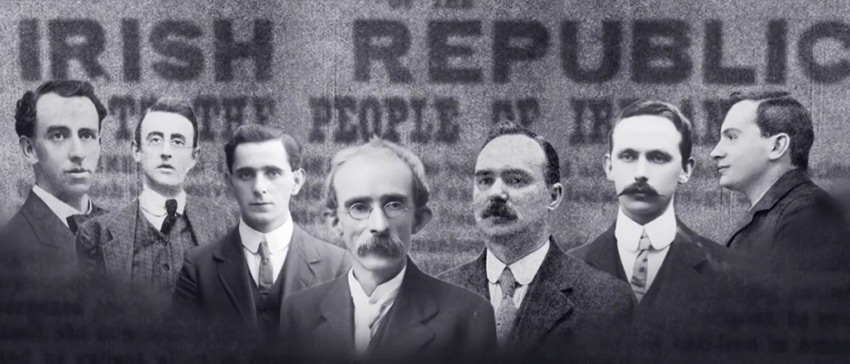
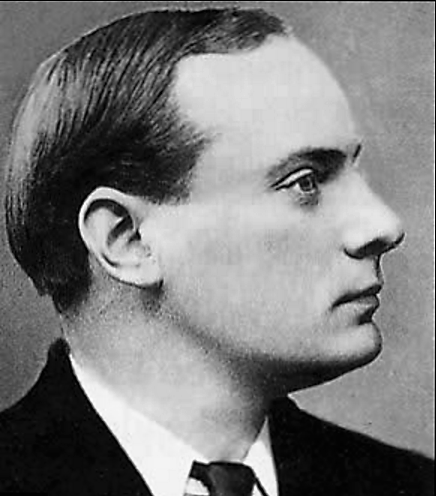 |
PADRAIG PEARSE
For his entire life, Padraig Pearse was a champion of Irish culture and was a founder member of the Irish Volunteers. He was the author of the Proclamation of Independence and was stationed at the G.P.O during the Rising as Commander in Chief. He was on May 3, 1916 executed for his role in the Rising. |
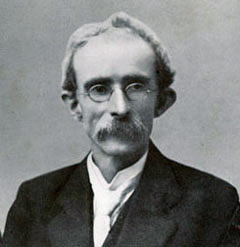 |
THOMAS JAMES CLARKE
As a young man, Thomas James Clarke spent time in America, where he joined Clann Na NGael. He later served 15 years of penal servitude for his role in a bombing campaign in London. After returning from the US, he held the post of Treasurer to the Irish Republican Brotherhood and served on the Supreme Council. Clarke’s signature is listed first on the Declaration and he served at the G.P.O during the rising. He was executed on May 3, 1916. |
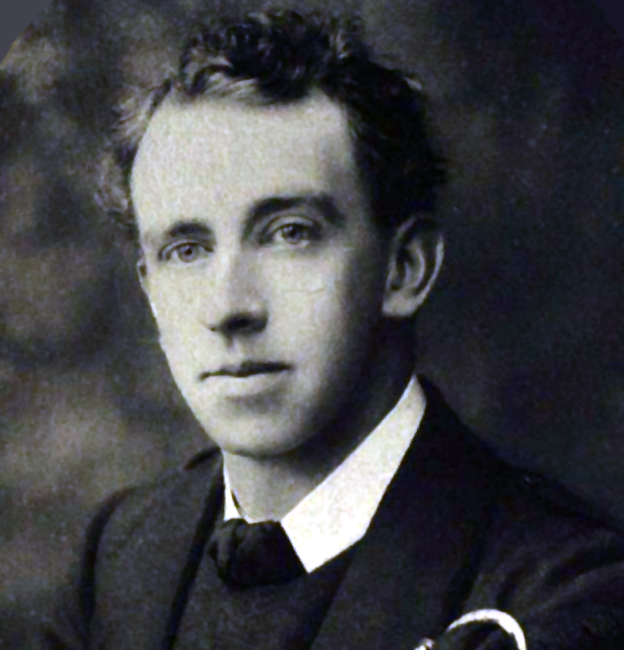 |
THOMAS MACDONAGH
Thomas MacDonagh founded St. Enda’s school with Padraig Pearse and held a position in the English Department at University College Dublin. He authored the play “When the Dawn is come” which was produced at the Abbey Theater. MacDonagh was appointed director of training for the Irish Volunteers in 1914 and later joined the Irish Republican Brotherhood. He was appointed to the military committee in 1916 and commanded the Second Battalion of Volunteers at Jacob’s biscuit factory during the Rising. He was executed on May 3, 1916. |
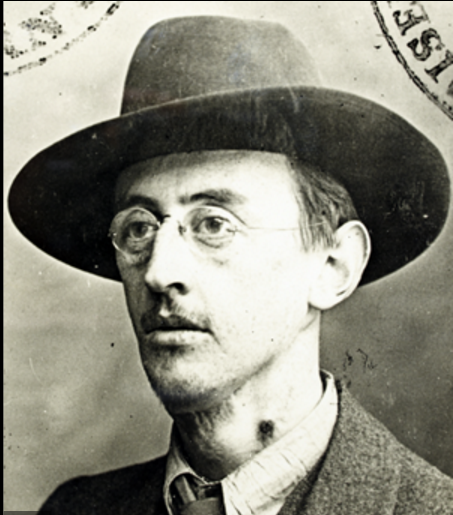 |
JOSEPH MARY PLUNKETT
Joseph Mary Plunkett was initially educated in England but returned to Ireland and graduated from University College Dublin in 1909. Along with Thomas MacDonagh and Edward Martyn, Plunkett helped to establish the Irish National Theater and he was also an editor of the Irish Review. He joined the Irish Volunteers in 1913 and subsequently the I.R.B in 1914. Plunkett travelled to Germany in 1915 to meet Roger Casement and during the planning of the Rising was appointed Director of Military Operations. He was stationed in the G.P.O. Following the surrender, Plunkett married Grace Gifford in Kilmainham Gaol hours before his execution. He was executed on May 4, 1916. He was 29 years old. |
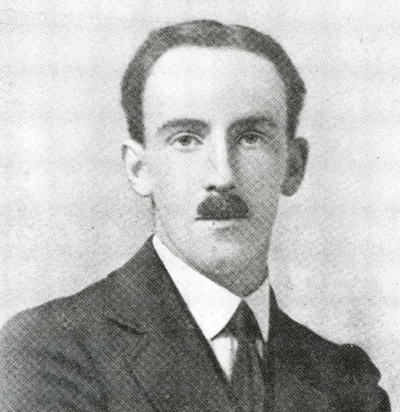 |
EDWARD DALY
Edward Daly was from a family with a history of Republican activism; his uncle John Daly having taken part in the rebellion of 1867. Daly led the First Battalion during the Rising, which eventually seizing control of the Four Courts. Daly was a close friend of Tom Clarke, and that friendship was made even stronger when Clarke married Daly’s sister. Daly was executed on 4 May 1916. He was 25 years old. |
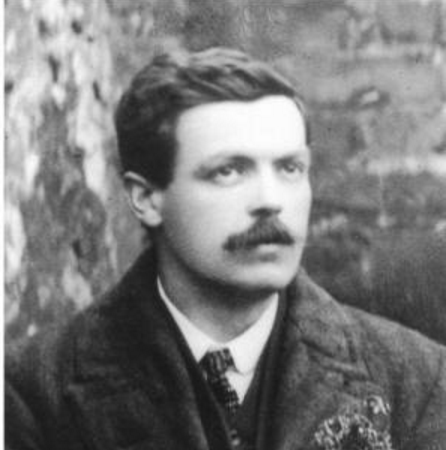 |
MICHAEL O’HANRAHAN
Michael O’Hanrahan was heavily involved in the promotion of the Irish language, founded the Carlow branch of the Gaelic League. He also published two novels, A Swordsman of the Brigade and When the Norman Came. O’Hanrahan joined the Irish Volunteers at it’s inception and was second in command to Thomas MacDonagh at Jacob’s biscuit factory during the Rising. O’Hanrahan was executed on May 4 1916. He was 39 years old. |
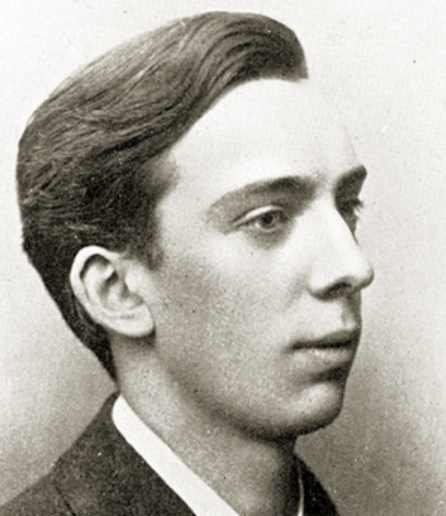 |
WILLIAM PEARSE
William Pearse shared his older brother Padraig’s passion for an independent Ireland. He assisted in running St. Enda’s and the two brothers were extremely close, fighting alongside each other in the G. P. O. William was executed on 4 May 1916. Pearse railway station on Westland Row in Dublin was re-named in honour of the two brothers in 1966. William Pearse was 35 years old. |
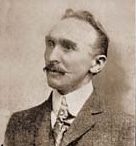 |
JOHN MacBRIDE
John MacBride originally trained as a doctor, but changed profession in favor of work with a chemist. In 1896, MacBride travelled to America promoting the Irish Republican Brotherhood before travelling to South Africa where he raised the Irish Transvaal Brigade during the Second Boer War. MacBride married Irish nationalist Maude Gonne in 1903 and although he was not a member of the Irish Volunteers, at the beginning of the Rising, MacBride offered his services to Thomas MacDonagh. He was at Jacob’s biscuit factory when that post was surrendered on Sunday, 30 April 1916. John MacBride was executed on 5 May 1916. He was 51 years old. |
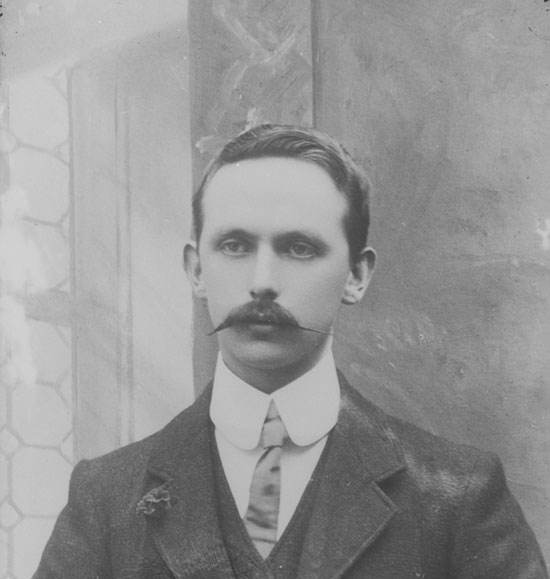 |
EAMONN CEANNT
Eamonn Ceannt was a co-founder of the Irish Volunteers, and in 1914, took part in the successful Howth gun-running operation. Ceannt was an accomplished uileann piper and had a major interest in Irish culture, specifically the language and history. During the Rising, Ceannt was the commander of the Fourth Battalion of Irish Volunteers, taking possession of the South Dublin Union, now the site of St. James’s Hospital. He was executed on 8 May 1916. He was 35 years of age. |
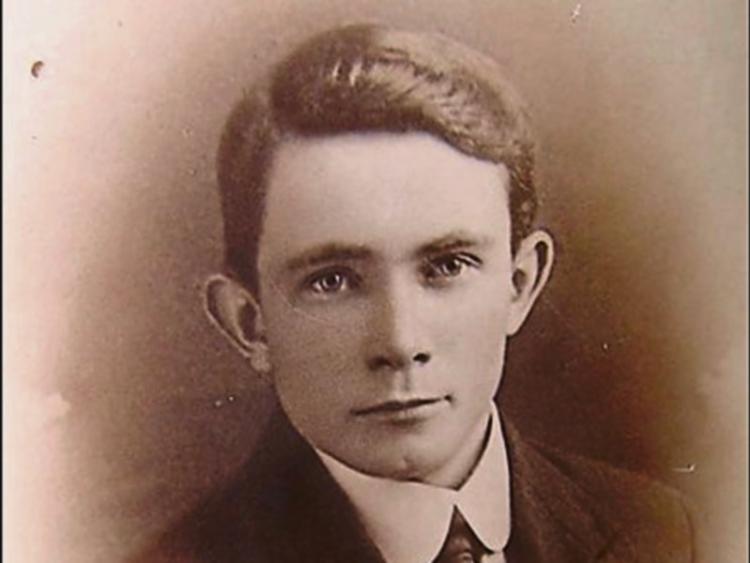 |
CON COLBERT
Prior to the Rising, Limerick man Con Colbert was an active Republican and belonged to both Fianna Éireann and the Irish Volunteers. He was a dedicated pioneer and never drank or smoked. During the As the captain of F Company of the Fourth Battalion, Colbert was in command at the Marrowbone Lane distillery when it was surrendered on Sunday, 30 April 1916. He was executed on 8 May 1916. He was 28 years old. |
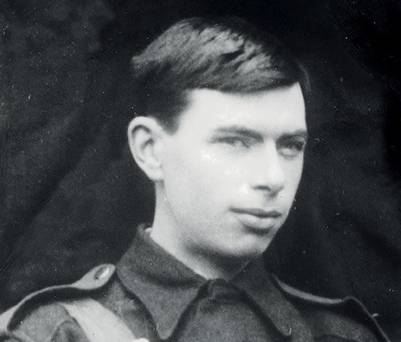 |
SEAN HEUSTON
Sean Heuston organised Fianna Éireann in Limerick. He was involved in the was involved in the education of the schoolboys at Scoil Éanna, organising drill and musketry exercises, along with Con Colbert. Under Heuston’s command, members of the First Battalion of the Volunteers occupied the Mendicity Institute on south of the Liffey, holding out there for two days. He was executed on 8 May 1916. Heuston Railway station in Dublin is named after him. He was 25 years old. |
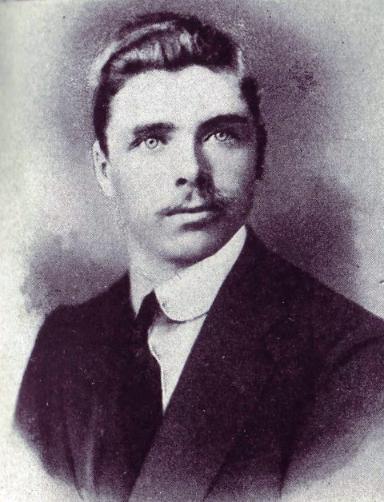 |
MICHAEL MALLIN
Prior to the Rising, Michael Mallin was a silk weaver in Dublin. During the conflict, Mallin was the Chief of Staff of the Irish Citizen Army. Along with Countess Markievicz, he commanded a small contingent of the army, taking possession of St. Stephen’s Green and the Royal College of Surgeons. Michael Mallin was executed on 8 May 1916. He was 42 years old. |
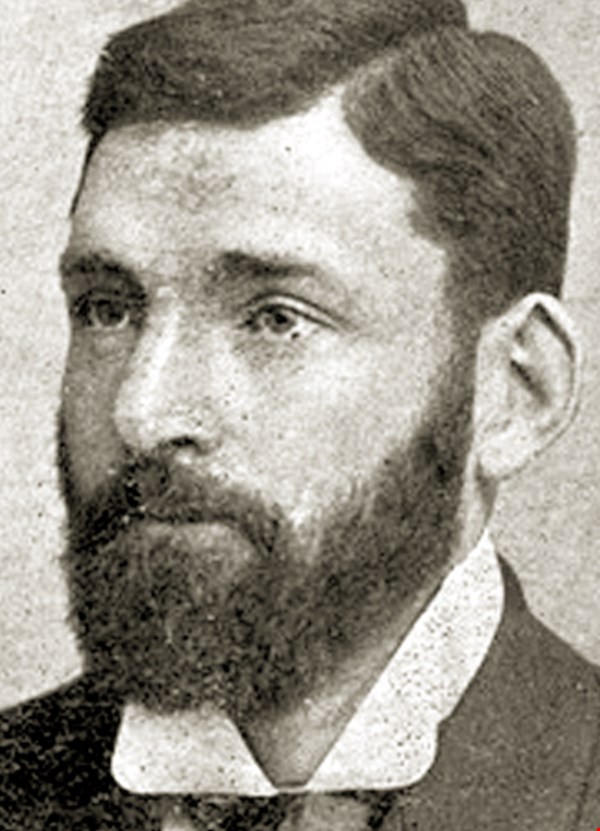 |
THOMAS KENT
Kent lived in Castlelyons, Co. Cork and planned to travel to Dublin to participate in the Rising. However, when the mobilization order for the Irish Volunteers was cancelled on Easter Sunday he stayed at home, assuming the Rising had been postponed. Kent was arrested at his home in Castlelyons, Co. Cork following a raid by the Royal Irish Constabulary on 22 April 1916. His brother Richard was fatally wounded during the raid. Thomas Kent was executed at Cork Detention Barracks on 9 May 1916 following a court martial. In 1966 the railway station in Cork was renamed Kent Station in his honor. He was 51 years of age. |
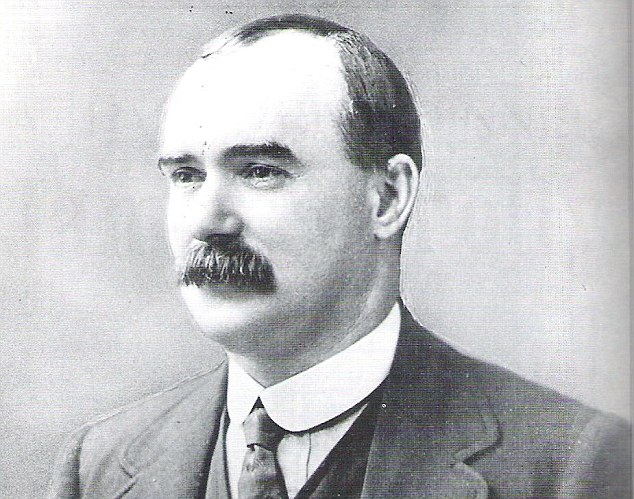 |
JAMES CONNOLLY
James Connolly was born in Edinburgh in 1868 and was first introduced to Ireland as a member of the British Army. The strong Irish presence in Edinburgh stimulated Connolly’s growing interest in Irish politics in the mid 1890s. In 1896, Connolly emigrated to Dublin where he founded the Irish Socialist Republican Party. Having spent several years in America, Connolly returned to Ireland to campaign for worker’s rights with James Larkin. He campaigned tirelessly against religious bigotry and in 1913, Connolly was one of the founders of the Irish Citizen Army. During the Easter Rising he was appointed Commandant-General of the Dublin forces, leading the group that occupied the General Post Office. Connolly was wounded during the Rising and as a result was unable to stand to during his execution. He was executed while sitting down on 12 May 1916. James Connolly was 48 years old. |
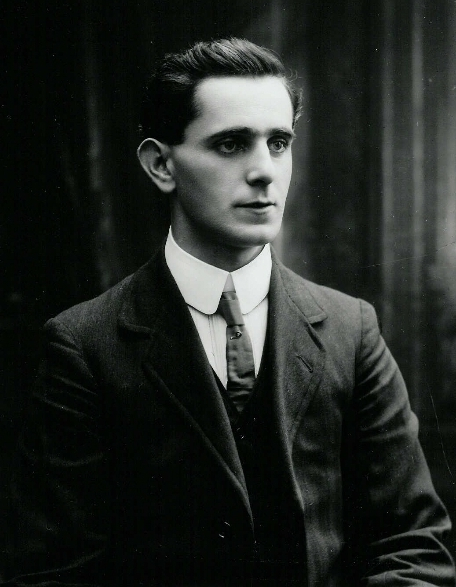 |
SEAN MacDIARMADA
MacDiarmada emigrated to Glasgow in 1900, and moved to Belfast in 1902. In 1906, while still in Belfast, MacDiarmada joined the Irish Republican Brotherhood. In 1908, he transferred to Dublin and two years later, took charge of the I. R. B. newspaper Irish Freedom in 1910. Although he was afflicted with polio, he became a member of the provisional committee of Irish Volunteers in 1913, and was subsequently drafted onto the military committee of the I. R. B. in 1915. During the Rising MacDiarmada served in the G. P. O. He was executed on 12 May 1916. He was 32 years old. |
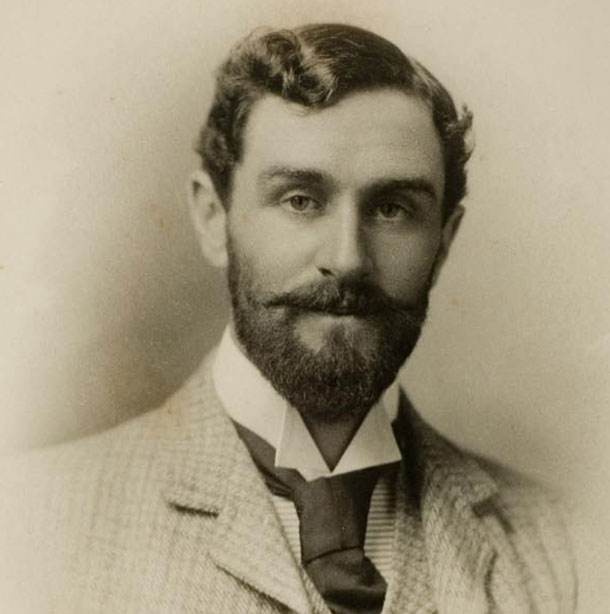 |
ROGER CASEMENT
Born in 1864 in Dublin, Roger Casement received a knighthood for his services to the British consulate, having campaigned tirelessly to expose the cruelty inflicted on native workers in the Belgian Congo in 1904, and again in Brazil from 1911-1912. Casement had become a member of the Gaelic League in 1904, and began to write nationalist articles under the pseudonym ‘Seán Bhean Bhocht’. He retired from the British consular service in 1913, joining the Irish Volunteers. Based on his previous experience, Casement was dispatched to Germany to recruit a Brigade from Irish prisoners of war. He returned to Ireland in a German U-boat but was captured in Kerry on Good Friday in 1916. Casement was imprisoned in Pentonville Gaol in London, where he was tried on charges of High Treason. He was executed on 3 August 1916, the only leader of the Rising to be executed outside of Ireland. He was 52 years old. |
